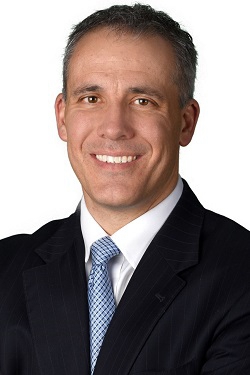You weren’t likely aware of this while growing, but not all physical growth is proportionate across the human body. Some parts grow more quickly than others. Feet are one of these parts that reach physical maturity at an earlier stage; this is essential for supporting the body. Unfortunately, it can sometimes lead to heel pain in kids. With this in mind, let’s take a look at a condition known as Sever’s disease and see what it means for your son or daughter.
Adolescent Heel Pain
Heel pain is a common problem for many individuals, which is partially explained by the fact there are so many different causes, like plantar fasciitis, Achilles tendinitis, and calcaneal fractures. It is also explained by the amount of physical force we place on our feet every day. Now, when it comes to adolescent heel pain, the common culprit is not one of the aforementioned conditions, but rather a problem known as Sever’s disease. 
In spite of the name, Sever’s is not actually a disease. Also known as calcaneal apophysis, this is an issue that arises when the heel bone—and especially a growth plate located in the back—reaches physical maturity before the Achilles tendon. Given the fact the tendon is anchored to the heel bone, there is excess tension until the tendon reaches its full growth.
The predominant symptom of Sever’s is pain in the back of the heel, particularly in the area where the Achilles tendon connects. This pain can be either intermittent (coming and going over time) or chronic (consistently present), and it does tend to worsen both during and after physical activity. As such, sudden withdrawal from previously-enjoyable activities is an indication your son or daughter is experiencing this condition. Of course, it’s also a pretty clear sign if they outright tell you it hurts as well.
In addition to the pain, there might be some inflammation, redness, and tenderness in the back of the heel area. A gentle squeeze will feel more painful than it probably should.
Treating Adolescent Heel Pain
There are numerous instances wherein the goal of our treatment plan is to address the underlying issue for a condition by correcting the root cause. Since Sever’s disease is basically a growing pain, that isn’t the case here. Instead, our treatment is centered on relieving your son or daughter’s pain.
To accomplish that, we rely on a variety of heel pain treatment options that include:
- Reduced physical activity – Activities causing pain should be limited, or possibly even stopped altogether, depending on symptom severity.
- Medication – In order to relieve inflammation and pain, we may prescribe nonsteroidal anti-inflammatory drugs (NSAIDs), like ibuprofen or naproxen. If you provide over-the-counter medications for your son or daughter, consult with us first for appropriate dosages and specific recommendations.
- Physical therapy – Stretching exercises and therapeutic modalities can be rather beneficial in allowing inflamed tissue to heal correctly.
- Supporting affected heels – We might recommend using shoe inserts or prescribe custom orthotics to better support an affected heel. These devices can reduce pain and inflammation by placing the foot in better position.
- Immobilization – In rare cases that cause severe pain, we might recommend immobilizing the area with a cast.
The good news about Sever’s disease is that the condition will eventual resolve itself once the Achilles heel has caught up physically with the heel bone. Even better is the fact there are rarely, if ever, any long-term issues from it.
For many different foot and ankle issues, there are preventative measures that can be taken. Hopefully it is easy to understand why this isn’t the case for Sever’s. With that being said, there are measures that can be somewhat helpful. Make sure your son or daughter wears activity-appropriate footwear that features ample cushioning in the heel area and robust arch support.
If you have a son or daughter who is struggling with heel pain, or any other foot issue, schedule an appointment with our Twin Falls, ID office. Dr. Wettstein will diagnose the issue and then create a treatment plan to address it. Call us at (208) 731-6321, or request an appointment online today.
